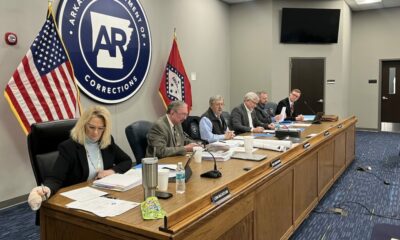(The Center Square) – Florida Senate President Ben Albritton wants to spend $200 million to help the state’s ailing citrus industry as it faces the issues of population growth, hurricanes and an invasive disease that ruins the fruit.
The Wauchula Republican whose district constitutes the heart of Florida’s citrus country proposes spending $190 million for grove management, therapeutic tools and disease-resistant varieties for new plantings and the rehabilitation of existing trees.
The Senate’s budget proposal, Senate Bill 2500, would also appropriate $10 million to assist citrus producers increase their yields. Growers would receive $125 million of the $190 million to purchase new trees, while $10 million would be for citrus packing houses.
“Mark my words, Florida citrus is not going down on my watch,” Albritton said in a news release announcing the proposal. “This heritage industry is not only vital to our state’s economy, but it is truly a part of the DNA of Florida. To those growers who are left in the business, hear me when I say, you are not forgotten, you are not alone, and the Florida Senate is running to this fight.
“Research and new technologies offer a renewed hope for the future of citrus. Florida will lead the way in pursuing these opportunities. We’re on the edge of something special. Florida citrus is making a comeback, one tree at a time.”
But is it too late?
Florida’s production of citrus fruit has plummeted 90% in the past two decades, going from 300 million boxes to only 20 million boxes, according to a data from a December report by the nonprofit group Florida Taxwatch.
One of the issues is citrus greening disease, which has infected all of the state’s commercial groves. The disease causes the fruit to become bitter and eventually kills the trees. There is no cure and $61 million has been spent by state officials on research to no avail.
The bacterial infection spread by an invasive insect, the Asian citrus psyllid, appeared in 2005 and, according to data from the U.S. Department of Agriculture, can reduce production by 75% and doubled production costs from 2005 to 2015.
Destructive hurricanes also have played havoc with the state’s groves. In 2004, four hurricanes made landfall in Florida: Charley, Frances, Ivan and Jeanne and the state’s citrus product dropped by 150 million boxes.
In 2024, three hurricanes – Beryl, Helene and Milton – hit the state in 66 days. As a result, the USDA predicted in December a 20% drop from the October forecast for all orange production and levels were down across the board for citrus.
Freezes can also affect citrus yields as well.
Non-Valencia oranges were predicted to have a 17% drop from the October forecast, 22% falloff for Valencia oranges, 14% reduction for grapefruit and tangerine and mandarin production predicted to fall by 13%.
Population growth, according to Florida Taxwatch, has also played a role as growers find selling their land to developers more lucrative than continuing to struggle amid hurricanes and rising production costs.
At stake is a $6.9 billion industry that Florida Taxwatch says supports more than 32,000 jobs.











































